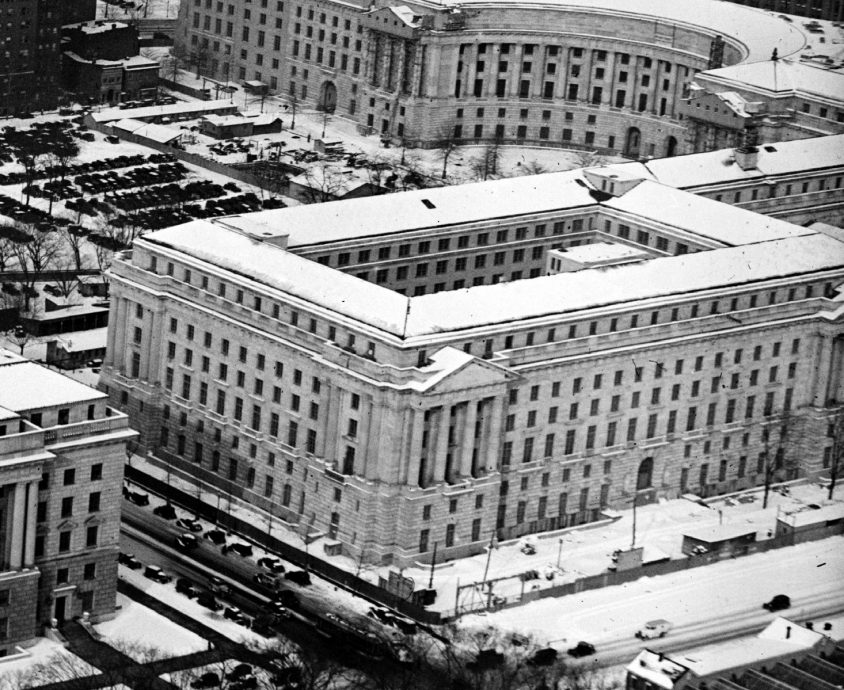What's the Administrative State's Date of Birth?
I’m thrilled to be guest blogging this month, and looking forward to discussing the administrative state, political parties, and other topics. For my first post I want to bring up an interesting question that emerged in a review by Ted McAllister (and in the comments) from last week, regarding the origins of the modern regulatory/administrative state. Scholars often trace the birth of the administrative state to the 1880s, especially in two critical episodes: the passage of the Pendleton Act in 1883 which created the modern civil service, and (more importantly) the passage of the Interstate Commerce Act in 1887, which created the Interstate Commerce Commission. This history of the administrative state makes the late nineteenth century the critical turning point in American history.
This is a plausible, but ultimately I think a mistaken history. The regulatory initiatives of the late 19th Century were much more consistent with an earlier view of American constitutionalism that they appear at first glance. They were not necessarily harbingers of the modern administrative state. Tracing the birth of the administrative state to the 1880s is somewhat misleading.
Certainly if we are simply tracing the evolution of the regulatory state by the creation of administrative agencies, 1887 stands as a watershed moment. Aside from the 1852 Steamboat Safety Act, no statute prior to 1887 established a modern regulatory commission as an administrative body. But if we examine the nature of the powers granted to the ICC in 1887, it is clear that the ICC did not serve as a prologue to the modern agencies we have today.
The ICC was not established as an independent regulatory commission. It was situated within the Interior Department, and was likely moved out of that Department (a few years later) only because Congress wanted to eliminate presidential control of the commission once it became clear that Benjamin Harrison (a pro-railroad politician) would become President. It was given quasi-judicial powers rather than rulemaking or ratesetting powers. In other words, it acted as a court rather than an agency: specific complaints regarding rate discrimination, pooling, and rebating could be brought to the ICC for resolution, but the Commission could not set rates prospectively. And further, the right to bring suits at common law was explicitly preserved by the Act. So parties could bring complaints to either a court, or the commission. Both options were left open. Finally, the ICC had no enforcement power. It could merely ask the appropriate U.S. Attorney to file suit in federal court for enforcement.
Why would Congress set up such a weak regulatory commission? The answer is that there was no consensus in favor of a modern regulatory state, such as the one the Progressives would attempt to build a generation later. To oversimplify a complex legislative debate, the pro-commission forces in Congress (led by Shelby Cullom) wanted to set up an expert commission because they were concerned that rigid prohibitions would be more harmful than good, due to the complexity of circumstances surrounding the industry. The anti-commission forces were Populists led by “Judge” John Reagan, and they labeled any grant of administrative discretion as tyrannical. Reagan lambasted the Interstate Commerce Act, saying that Americans were “not accustomed to the administration of civil law through bureau orders.” The lack of a strong Progressive presence in Congress, in other words, combined with strong resistance to the idea of an administrative state, combined to establish a very modest regulatory institution. The ICC was not the birth of the modern regulatory state – it was something else altogether.
This raises an important point. There were not two, but three camps that emerged from 1877-1930 regarding the role of regulation in a free society post-Industrial Revolution. One approach, the laissez-faire Social Darwinist approach, said that historical progress could be achieved by eliminating government control and letting the strongest rise to the top. Another approach, associated with the Progressives, emphasized the need to alter our constitutional system to establish a new type of regulatory institution — and thus create a modern administrative state. The third approach wanted to establish new regulatory programs to meet new conditions, but it sought to do so within the traditional constitutional system. I think that the ICC was created with significant input from this third approach.
An administrative state must contain several features, including delegation of legislative power to agencies and the notion of separating politics and administration. The ICC contained neither of these features at its inception. Thus I would argue that it was not until Theodore Roosevelt’s emergence as a national force that America moved towards a modern regulatory state combined with the stewardship theory of the presidency. (If we are in search of a “birthdate” for the administrative state, I might suggest the passage of the Hepburn Act in 1906, with TR using the bully pulpit to take leadership of the Congress.) The Interstate Commerce Act and the Sherman Antitrust Act were attempts to establish a very different kind of regulatory institution, and were animated by a much more traditional view of American constitutionalism than most Progressives embraced.
Speaking of the stewardship theory of the presidency, Frank Buckley has offered some very important challenges to the conventional view of how the Framers thought about executive power and the separation of powers, both in his recent book The Once and Future King and in his posts here on this site. In a post later this week I will raise some questions about his interpretation of the Founding, and will defend the call for stronger political parties and party leadership (which I think is implicit in his argument).


